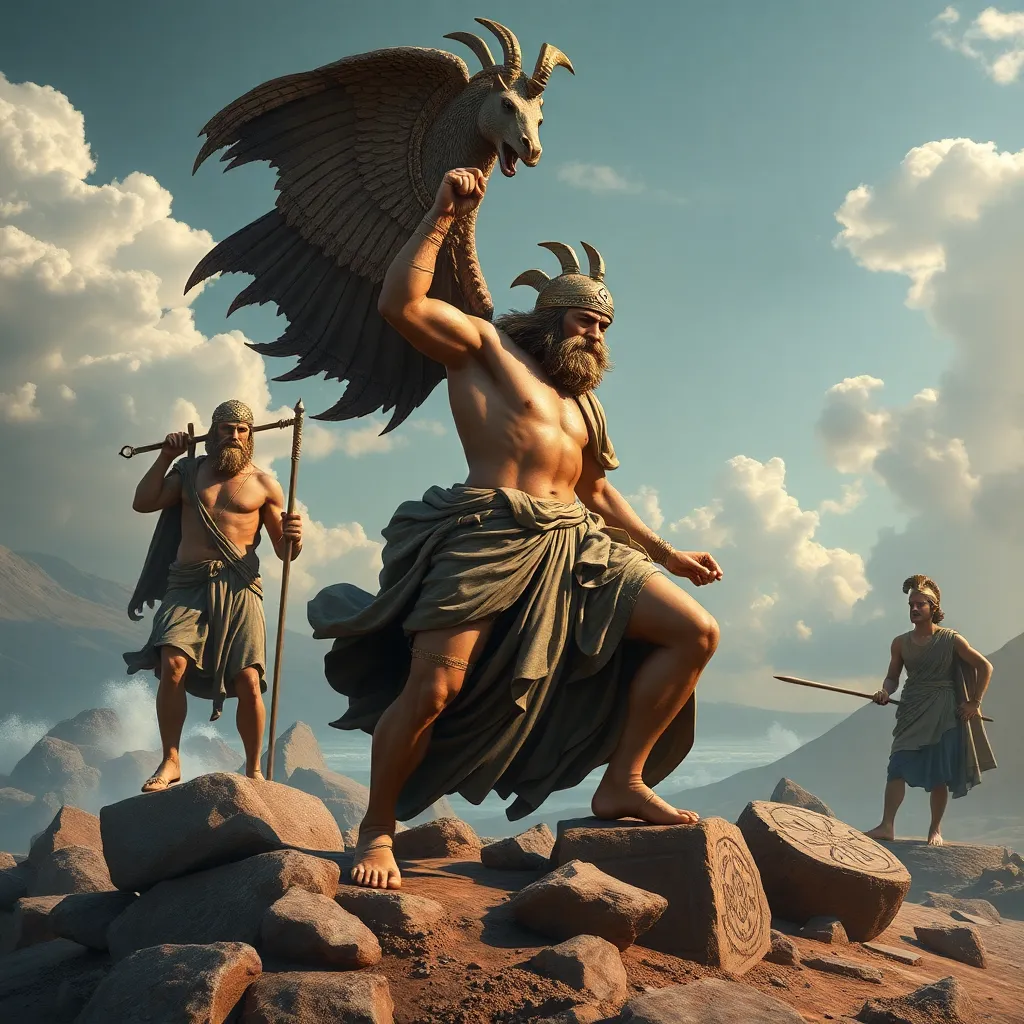The Role of Conflict Resolution in The Iliad
I. Introduction to Conflict in The Iliad
The Iliad, attributed to the ancient Greek poet Homer, is a monumental work that explores themes of heroism, honor, and the human condition amidst the backdrop of the Trojan War. One of the most significant themes woven throughout the narrative is conflict. The interactions between characters and the struggles they face serve as a driving force that propels the story forward. This epic poem not only chronicles the events of war but also delves deeply into the nature of conflict and the various ways it can be resolved or left unresolved.
II. The Nature of Conflict in The Iliad
Conflict in The Iliad manifests in several forms, each contributing to the overarching narrative and character development. The primary types of conflict include:
- Personal Conflict: Internal struggles within individual characters, such as pride, honor, and grief.
- Interpersonal Conflict: Clashes between characters, notably between leaders and warriors.
- Societal Conflict: The broader conflict between the Greeks and Trojans, embodying the clash of cultures and values.
Key conflicts that illustrate these themes include:
- Achilles vs. Agamemnon: A power struggle that highlights themes of pride and authority.
- Trojans vs. Greeks: The epic battle that serves as the backdrop for individual stories and conflicts.
III. Character Perspectives on Conflict Resolution
Each character in The Iliad offers a unique perspective on conflict and its resolution:
- Achilles: His pride and quest for honor lead to a deep-seated rage that drives much of the plot. Achilles’ refusal to fight after his dispute with Agamemnon illustrates the destructive nature of unresolved conflict.
- Agamemnon: As the leader of the Greek forces, Agamemnon’s decisions reflect the challenges of authority. His choices often exacerbate conflicts, demonstrating the difficulties in leadership and the consequences of ego.
- Hector: The Trojan prince embodies duty and the human cost of war. His perspective on conflict emphasizes honor, love for family, and the tragic fate awaiting warriors.
IV. Role of the Gods in Conflict Resolution
The gods play a significant role in The Iliad, often intervening in mortal conflicts to influence outcomes. Divine characters such as Athena, Apollo, and Zeus are not merely spectators; they actively shape the events of the war:
- Athena: Represents wisdom and strategic warfare; she often assists the Greeks in their battles.
- Apollo: A protector of the Trojans, he intervenes to aid Hector and punish the Greeks.
- Zeus: The king of the gods, he maintains a delicate balance between the two sides, reflecting the complexities of fate and free will.
This divine intervention complicates the notion of conflict resolution, as decisions are influenced by the whims of the gods rather than solely by human agency.
V. The Consequences of Unresolved Conflicts
The Iliad starkly illustrates the repercussions of unresolved conflicts. Achilles’ rage leads to significant consequences for both the Greek forces and the Trojans:
- Impact on Greek Forces: Achilles’ withdrawal from battle demoralizes the Greeks and shifts the tide of war in favor of the Trojans.
- Tragic Outcomes: The personal vendettas, such as the feud between Achilles and Agamemnon, result in numerous deaths and suffering, highlighting the destructive cycle of revenge.
VI. Moments of Reconciliation and Resolution
Despite the overarching theme of conflict, The Iliad also presents moments of reconciliation and understanding:
- Key Scenes: Moments when characters come together to negotiate peace or understand one another’s motivations.
- Significance of Patroclus’ Death: The death of Achilles’ beloved friend serves as a turning point, prompting Achilles to re-enter the battle and seek vengeance, yet also leading to moments of reflection on the futility of war.
VII. Lessons on Conflict Resolution from The Iliad
The Iliad offers profound insights into human nature and the complexities of conflict resolution:
- Cycle of Revenge: The narrative illustrates how cycles of vengeance can escalate conflicts, leading to greater suffering.
- Balance between Pride and Humility: The characters’ journeys reflect the importance of humility and understanding in resolving disputes, as opposed to allowing pride to dictate actions.
VIII. Conclusion: The Enduring Legacy of Conflict Resolution in The Iliad
The Iliad remains a timeless exploration of conflict and resolution, offering lessons that resonate through the ages. The themes of pride, duty, and the human cost of conflict are as relevant today as they were in ancient times. As we reflect on the nature of conflict in our own lives and societies, the insights provided by The Iliad continue to inform our understanding of what it means to resolve disputes effectively and compassionately. The legacy of this epic poem endures, reminding us that while conflict may be an inevitable part of the human experience, the paths to resolution can lead to growth, understanding, and ultimately, peace.




